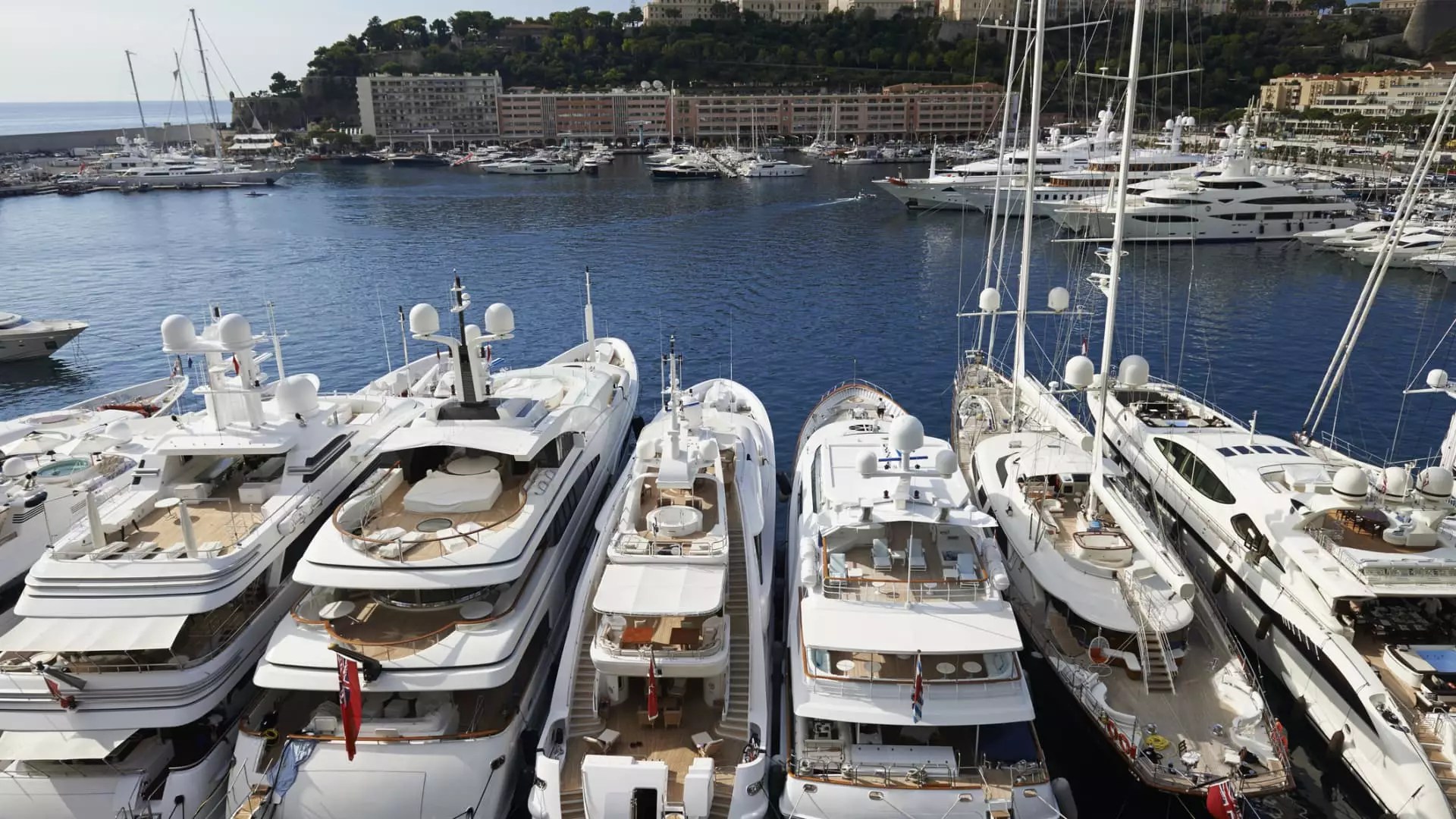In a world increasingly driven by economic stratification, the recent imposition of a 15% tariff on European-made yachts underscores a broader trend of protecting elite privileges at the expense of broader economic fairness. What is ostensibly a safeguard for American industry reveals itself as a tool that disproportionately benefits the wealthy while marginalizing smaller players and creating a climate of uncertainty. The very notion of tariffs as a defensive measure falls flat when the outcomes serve only to entrench existing inequalities, especially within a luxury market that operates parallel to the mainstream economy.
This move highlights a disturbing tendency for policy to prioritize the interests of the ultra-rich rather than fostering a level playing field. While the European boating industry laments the potential financial devastation, it is the richest Americans who will outmaneuver the system. Their access to complex legal and logistical loopholes transforms a policy meant to shield American workers into an enabler of elite tax avoidance. This duality exposes a fundamental flaw in how economic policies are designed—favoring those with the means to exploit them while leaving the average worker or small business to bear the brunt.
The Myth of Fairness in the Face of Wealth
The argument that a 15% tariff is a negligible addition for billionaires purchasing multi-million dollar vessels reveals a stark imbalance. It underscores that in a society riddled with income inequality, policies often serve as a playground for the wealthy to further preserve their dominance. For a billionaire yacht buyer, spending an extra couple of hundred thousand dollars might be marginal—an insignificant detail in their vast financial landscape. But for society at large, these tariffs are symptomatic of a system that benefits the few at the expense of common prosperity.
The tactic of registering yachts abroad to avoid tariffs is emblematic of a broader trend: the wealthy’s relentless quest to insulate themselves from societal obligations. Registering a boat in the Cayman Islands or Malta isn’t merely a technical maneuver; it symbolizes a refusal to accept shared fiscal responsibility. This privilege, legally and practically available only to the few, raises moral questions about equity and social cohesion. When large entities and individuals leverage international legal frameworks to sidestep taxes and regulations, it erodes faith in the fairness of economic and political systems.
The Economic and Moral Implications
This phenomenon does more than just distort market dynamics; it fosters a sense of injustice among the broader population. The perception that the elite can manipulate policies to safeguard their assets creates a narrative of inequality and superficial patriotism that rings hollow. While the American worker or small boat builder faces stiff competition, the wealthy navigate their way around tariffs with sophisticated legal counsel and strategic registration.
Furthermore, this exploitation may have unintended consequences for domestic industry, not because tariffs inherently protect jobs but because they may inadvertently reinforce a cycle of elite advantage. The push to reassert American manufacturing and craftsmanship is often undermined by those who prefer to hedge their bets through international legal conveniences. As demand for U.S.-made yachts potentially increases, it risks being framed as a victory for the common good, while the reality is that the rich continue to craft their assets in freelancing legal gray areas, further widening the social divide.
Policy Failures and Ethical Considerations
At its core, this tariff controversy illuminates a profound failure of policy designing—one rooted in a lack of oversight and a willingness to cater to the lobbying power of ultra-wealthy industries. The seductive narrative of protecting American jobs masks a deeper moral failure: policies are crafted less with societal fairness in mind and more to appease influential economic actors. This approach weakens the social fabric, leading to a polarized economic landscape where fairness is a myth rather than an attainable goal.
The challenge for a centrist liberal approach is to recognize that true economic security and fairness cannot be achieved by shielding industries alone or by allowing the wealthy to dodge their responsibilities under the guise of strategic maneuvering. Instead, it requires a nuanced understanding of systemic inequality, promoting policies that close loopholes, increase transparency, and foster shared prosperity—regardless of where assets are registered or how rich individuals navigate regulation.
By critically examining the implications of tariffs, we confront a core truth: economic policies must serve not only protectionist aims but also social justice. Giving the affluent the tools to sidestep regulations undermines the legitimacy of democratic governance and erodes public trust. To forge a truly equitable system, policymakers must be willing to challenge entrenched privilege, rethink tax structures, and develop safeguards that prevent the exploitation of legal loopholes by the wealthy elite. Only then can we move toward an economic landscape rooted in fairness, accountability, and shared growth.

